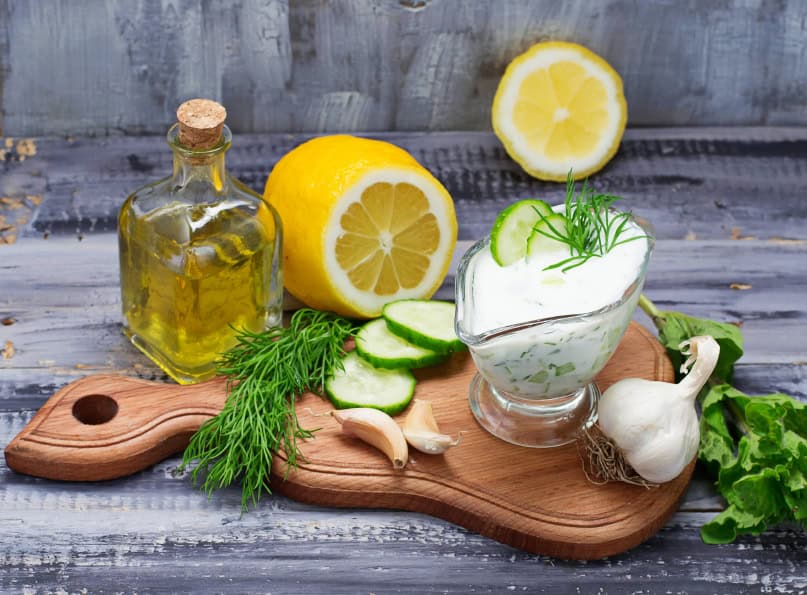While Greek food in Sydney and around the world has some regional variations, the basics remain – one of the major commonalities is of course the ingredients. So what would you find in a typical Greek pantry? Let’s take a look.
Fresh is best
The requirement for fresh produce is not unique to Greek food but it is a hallmark of it. Greek food is all about Mediterranean fresh – succulent seafood straight from the ocean, ripe farm vegetables, and tender meats marinated then slow-cooked or charcoaled to perfection. Quality ingredients are essential, so if you’re looking to prepare Greek food, always buy local, buy fresh and if you can afford it, buy organic.
Vegetable variety
When buying vegetables, tomatoes are probably at the top of the list, used to create delicious soups and sauces and added to stews and other main dishes. Tomato paste is also an essential. Spinach, beans, eggplant and potatoes are on high rotation. And no Greek pantry would be complete without garlic, onion and lemons.
Legumes
Legumes may be found in a variety of Greek dishes and the dried variety is the norm. They can be kept for months in the cupboard so are always great to have on hand. Chickpeas, lima beans, lentils and split peas are staples of Greek cooking.
Yoghurt and feta
Greek yoghurt and feta are both of the creamy variety and are used in a number of savoury dishes. Yoghurt sauces pair perfectly with tangy meats, and feta makes a tasty accompaniment to tomato, chicken and lamb dishes.
Olives, oil and wine
There is probably nothing that sums up Greek cuisine better than olive oil. Greek olive oil is generally considered the world’s finest and it’s the key ingredient in many favourite dishes. It’s used for dressings, sauces and marinades, and to drizzle over salads and vegetables. While a lesser quality olive oil may be used for cooking, always opt for extra virgin when preparing accompaniments or adding for flavour. Olive groves and vineyards are scattered across Greece and wine is part and parcel of Mediterranean life. Both red and white wine, brandy and even ouzo may also be used in the creation of common Greek dishes.
Nuts and honey
Nuts and honey are common to a number of desserts, with baklava in particular likely to be found in nearly every Greek home and restaurant. Picture honey and nuts wrapped in delicate layers of pastry and flavoured with rose water. Sensational!
Herbs and spices
Herbs and spices are used in Greek cuisine to enhance the natural flavours of the fresh, local produce. Start with high quality sea salt and freshly ground black pepper, then add herbs and spices to suit the style of dish. Favourite herbs include oregano, thyme, mint, sage and parsley, best when grown fresh. Greeks tend to opt for spices that offer zest rather than heat, so rather than chilli, you’ll find cumin, cinnamon and cloves in both sweet and savoury dishes, breads and pastries.
The taste of Greece
And the number one key ingredient of Greek cuisine? Friends and family! Greek food is meant to be shared and we can’t think of a better location in Sydney than overlooking beautiful Darling Harbour. If you’re looking to celebrate the best in Greek cuisine, then why not book a table with us today? We’d love to have you at Georges.
